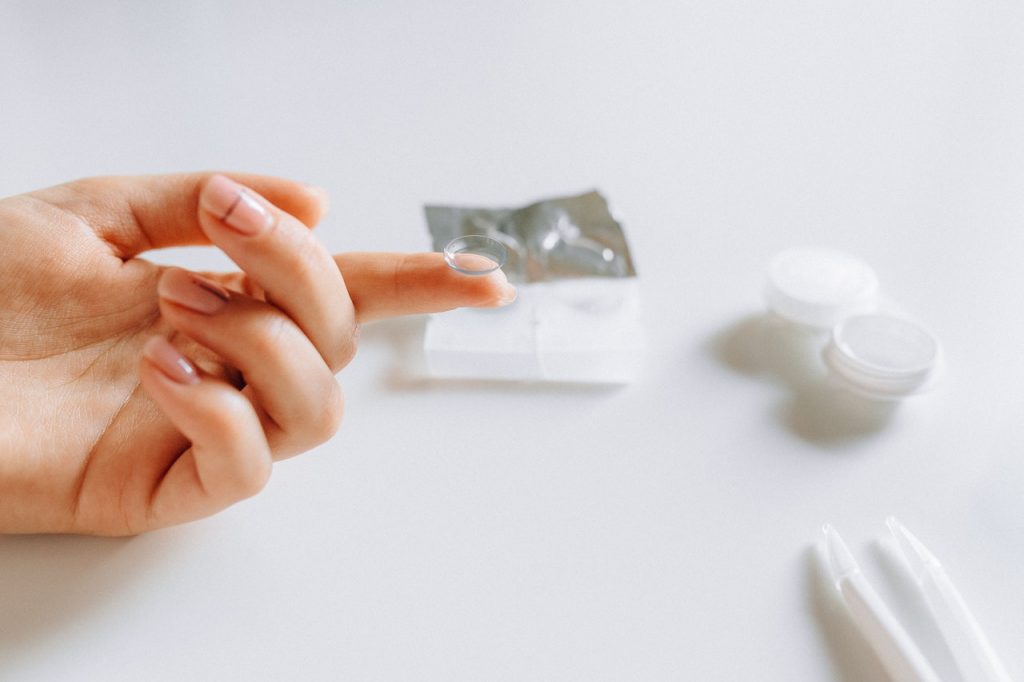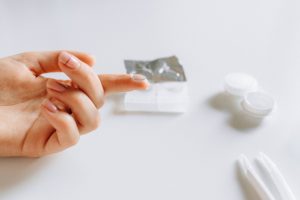Do Not Wear Contacts While You Sleep

“Do not sleep with your contact lenses on.” A golden rule that every wearer of contact lens should know above all other instructions. As the message is received overwhelmingly, many assumptions go as extensive as you’ll go blind, or the contact lenses will embed as part of your eye, or it will melt in your eyes. Before anybody gets convinced that defying this would lead to believing that you may not be able to open your eyes, let’s look at the facts that lead to why you should not wear contacts while sleeping.
Understanding how contact lenses work
Whether with a corrective purpose or aesthetic, contact lenses adhere over the corneal surface through the layer of the tear fluid coating the eye surface. Now that is the very reason why the contact lenses can stay in place as your eye moves with the help of the eyelid putting pressure on the lenses as your eyes close. This whole experience makes it much preferred over eyeglasses.
What could go wrong
As our cornea gets exposed to different kinds of bacteria as often as we open our eyes, it can deter infection. Thanks to the body’s natural defense mechanism which includes bodily fluids that help us against contaminants. Although this process may need proper hydration and oxygenation, we rarely feel the body’s efforts in complying from time to time until you start wearing contact lenses.
Due to that actual sheath that covers the cornea, it may hinder 100% hydration and oxygenation. Partly, it becomes deprived of it. Hence, the usage of eye drops, and the instruction, not to sleep with it.
What happens is that, like any tissue of the body getting deprived of oxygen, it may end up losing its ability to function. Hypoxia, the state of not having enough oxygen, can be a predisposing factor to being unable to fight bacteria effectively.
Dangerous eye conditions
As contact lenses itself, are not considered a body part, even if it fits perfectly, the body may react to it as part of the rejection process. It is a vehicle for harbouring bacterial growth also, if not thoroughly cleaned of building debris. In that accord, infection is not far from occurring. Here are some of the eye conditions that you may have if you deprive your eye of the proper oxygenation and hydration. When you sleep with your coloured contact lenses in at night time you will make the
- Fungal Keratitis – an eye infection most commonly found in tropical places and mild temperatures. It is one of the leading causes of blindness in India. That’s why it is essential to treat it as soon as detected to prevent loss of vision. Most people experience this secondary to other eye trauma involving a branch, plant, or stick. Sleeping in your contacts increases your tendency to acquiring this.
- Bacterial Keratitis – a corneal infection generally caused by the bacteria, Staphylococcus aureus, or Pseudomonas aeruginosa. Both the body and the environment can be agents for affecting your eye with these bacteria. Having compromised immunity and an eye injury could predispose bacterial keratitis. As for the best intervention for this, the National Eye Institute suggests treatment by eye drops and steroid drops for the more serious ones. Avoid leaving it untreated as it could permanently scar the cornea.
- Acanthamoeba Keratitis – is caused by an amoeba found in water resources such as tap water, swimming pools, hot tubs, rivers and lakes. As it occurs, microbial eye infection may also be, acquired at the same time, according to the American Optometric Association. Therefore, swimming in them or cleaning your coloured contacts for Halloween using tap water to expose your eyes to such infection. Treatment requires a long regimen of medicated eye drops to be applied. If eye drops aren’t much of a help, surgery is the next option for intervention.
In Conclusion
Generally, sleeping with your contact lenses on should give you a notion of how risky it could get if you do so through this article. At all costs, prevention is better than cure. Therefore, the greatest of all efforts should aim for it.







